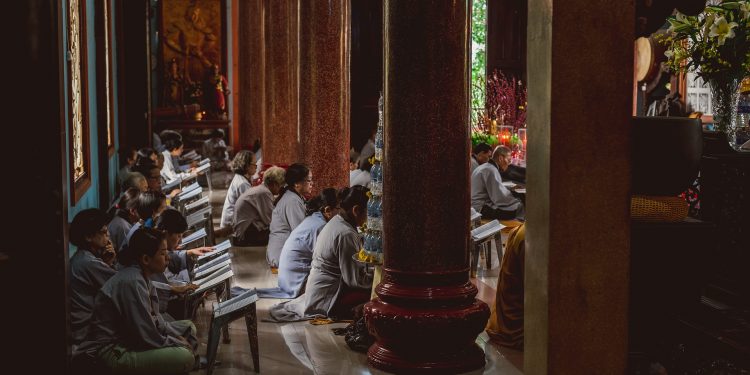SABARIMALA AND MOBILIZATION- A PROBLEMATIC COALITION

It is almost ironic that India- acknowledged as a leading economy, one of the largest democracies, an emerging superpower and even a progressive country by some- after nearly 72 years of independence is still struggling for equal rights for men and women to enter a temple. The Sabarimala temple entry issue, essentially a conflict between the right to equality and the right to freedom of religion, has become a subject of immense debate and deliberation with popular party leaders expressing their controversial opinions. So, it was evident that the political parties saw this as an opportunity to procure votes by politicizing a cardinal social issue.
WHAT IS THE SABARIMALA ISSUE?
The Sabarimala temple has barred women from entering the temple due to a custom that had been followed for ages. The history can be traced back to the Pandya dynasty to which the presiding deity at Sabarimala belonged. According to a legend, Lord Ayyappa practiced celibacy and thus menstruating women (from ages 10 to 50) were not allowed to enter the temple. This custom, which is perceived as a symbol of patriarchy and exclusion, was challenged a long time ago when a PIL was filed against it in 2006.
THE VERDICT
The Supreme Court gave its statement in September, 2018, ruling that the traditions and customs of the Ayyappan temple violate women’s right to worship, and announced that women will no longer be denied entry into the temple. This sparked profuse protests from people living in Kerala that turned violent in no time. Women had to be provided with special police protection to walk through the brutal and aggressive crowd of protesters to reach to the temple gate where they were still denied entry.
The first women to enter the Sabarimala temple despite strong opposition and protests were Bindu and Kanaka Durga who did so in January, 2019, roughly 3 months after the verdict came out. However, after their visit, the temple was closed for an hour and a half of “purification”. This incident is the proof of backwardness that is set in our social psyche and how it manifests itself in deeply divisive actions.
POLITICIZATION OF THE ISSUE
This issue which at its core is an issue of women empowerment and faith was quickly politicized by the right wing and left wing extremist parties. This involved allegations against CPM for keeping an anti-Hindu agenda for its perceived haste in implementing the court order. But the most recent and radical approach was the one taken by the BJP.
After the supreme court verdict came out, mass protests and riots broke out and chaos ensued. Women were stopped from entering the temple and mobs were being mobilized to protest by members of BJP which could not possibly have an agenda other than gaining political mileage. The main focus digressed from finding a solution to maximizing political benefit. It rendered the necessary debate on gender equality moot and created milieu of divisive politics.
BJP’S AGENDA
While the State Government of Kerala was trying to uphold the orders of the Supreme Court, it was criticized by the BJP leaders who also spoke openly against the Supreme Court verdict on the issue. It is evident that this was a cheap shot at vote bank politics. It was a sheer attempt at mobilization of the crowd and securing votes for the upcoming general election. Even if the fact that this is contempt of court is sidelined, capitalizing on a critical and volatile issue concerning social exclusion for electoral success and furthering their ideology is erroneous.
BJP’S RADICAL APPROACH
The Bharatiya Janata Party is a party that has built its political appeal on religious extremism and therefore it is no surprise that the party is using this tactic yet again. But the question arises: is our society equipped for such a strategy? India is a society of multiple cultures and peoples still with deeply entrenched and dividing differences. Can such a society, which is in dire need of embracing its pluralism, endure religious extremism? Past incidents teach us that this can only lead to violence and aggression. BJP has always banked on the human quality of being easily mobilized that has made our political culture fanatic and given too much power over our minds to political leaders.
THE SOLUTION
The only feasible solution to combat this problematic and deeply rooted culture is an attempt to change our belief systems and become more aware. It has become an urgent need to avoid being blindsided by leftist or rightist political ideologies. Being ignorant during such a time exposes us to a threat of being swayed by radical opinions. But having radical opinions poses a similar threat. A radical mind can spark as much violence as an ignorant one. I believe that moderating our opinions should be the aim to avoid violence.
Image Attribute: Pixabay



